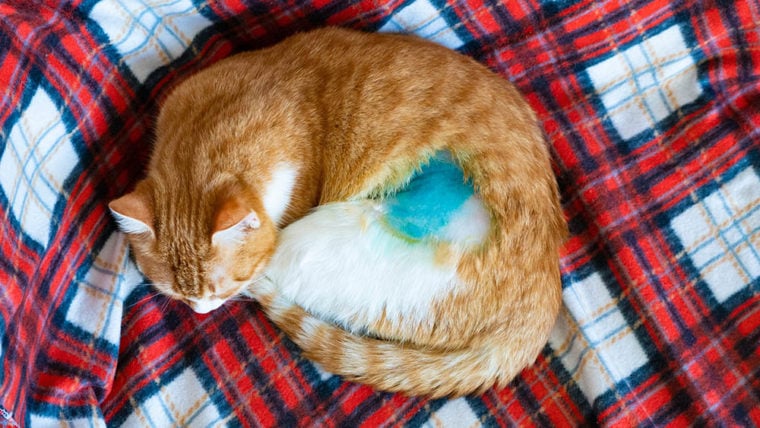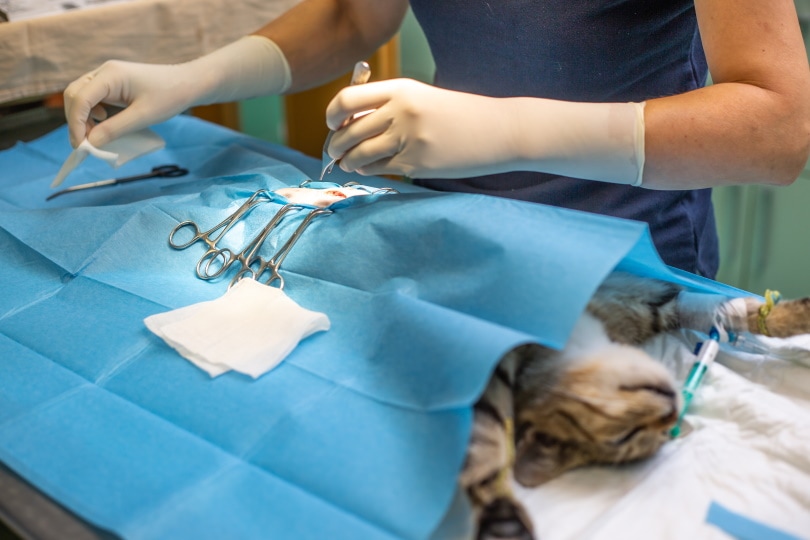
Veterinarians have been neutering male cats as young as 8 weeks old since the early 1900s, but nowadays, there is a worry about neutering too early. While pediatric neutering has its advantages, such as eliminating the risk of testicular cancer, reducing aggression, and preventing an incline in the stray cat population, there is much debate about when to neuter, and it seems it is ever-changing.
Male cats reach sexual maturity between 4 and 6 months old, which is when most experts recommend neutering. Many shelters will neuter a cat before being adopted, even as a kitten, with the procedure added in with the adoption cost, but is this a good idea for kittens? What happens if you neuter a cat too early?
With all the never-ending debates on when to neuter, we’ve compiled some factors to be aware of when you neuter too early. Read on to learn more so that you can make an informed decision about when to neuter your own cat.
The 5 Things That Can Happen if You Neuter a Cat Too Early
1. Narrowed urethra
Some experts argue that neutering too early can cause the urethra to narrow, which can cause urinary blockages. Much debate surrounds this concern, with a vast majority of experts arguing that early neutering does not alter the diameter of the urethra in male cats. We must note that studies have been performed that dispute the claim and point toward no narrowing of the urethra after castration,1 regardless of the age of when the procedure was performed.

2. Behavioral Issues
As we’ve stated, most male cats reach sexual maturity at roughly 4 to 6 months old, and some experts believe that by neutering after sexual maturity is reached, it could be too late to prevent behavioral problems—therefore, neutering before sexual maturity is reached provides a better outcome to halt behavioral issues.
3. Obesity
Some experts believe that early neutering can cause obesity, with a cat becoming more likely to become obese later in life after early castration. Cat obesity can be caused by a number of factors, such as overfeeding cat food and treats, to your cat having no access to exercise. However, some argue that early neutering is to blame due to an increase in appetite and low energy.

4. Surgical Complications
Debate circles around this topic often, with some experts arguing that a kitten could succumb to anesthesia more easily than a more mature cat. Anesthesia is always a possible complication with any surgery, but with pediatric neutering, it only occurs in roughly 1 in 1,000 male cats. Still, some argue that this number is higher, but sources are limited regarding this information. It has conversely been suggested that earlier ages for spays and neuters may actually have less surgical complications.
5. It May Change Growth
More studies are needed to substantiate this claim, but some experts believe early neutering can cause a delay in the closure of growth plates of the long bones, resulting in delayed closure, which could make the bones a little longer than normal. However, numerous studies have been performed that lean more toward this not being the case. Regardless, the potential pros and con.

Conclusion
Some experts claim there is a lack of scientific evidence supporting the theory that neutering a cat too early is a bad idea, with many studies causing more and more doubts about pediatric neutering causing health concerns. In the end, there really is little harm in waiting until your cat is at least 4 months of age before castration.
Despite the ongoing debate regarding this topic, many advantages come from neutering your cat, regardless of age, such as cutting down on the stray cat population, preventing certain cancers, decreasing aggression, and preventing spraying. In the end, consult your veterinarian about your concerns in order to help you know when is the best time to neuter your cat.
Featured Image Credit: ozanuysal, Shutterstock







